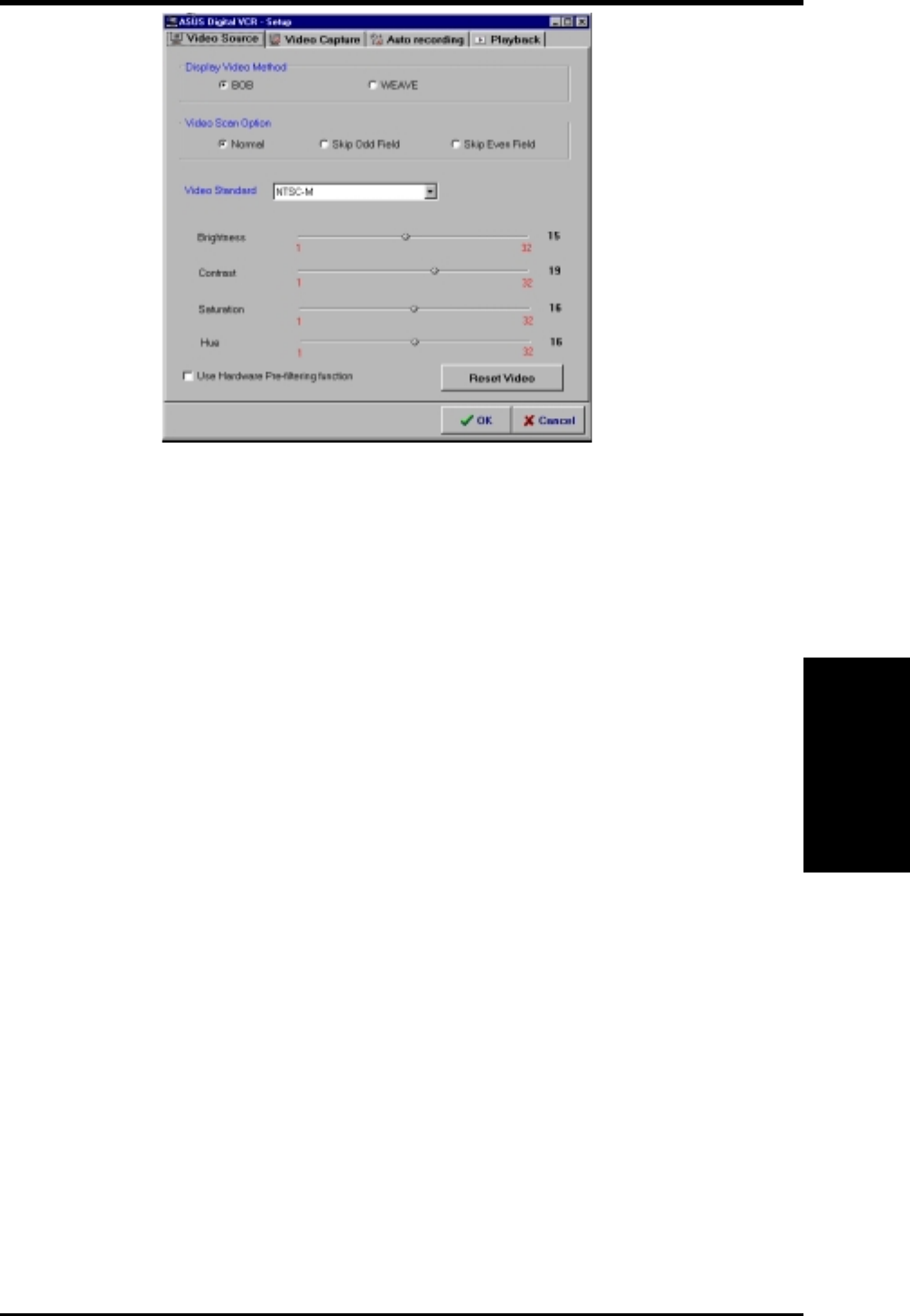
85ASUS V7100 Series User’s Manual
4. Software Reference
4. S/W Reference
ASUS Digital VCR
Display Video Method
Display Video Method lets you select ways to display video on your monitor: BOB
(default) or WEAVE. These methods are simple ways of correcting interlaced
display.ASUS Digital VCR by default will use the bob method for correcting inter-
laced display. If your video contains no motion, weave would be a best choice. For
more information, visit www.microsoft.com/hwdev/devdes/vpe.htm#Interleaved.
Video Scan Option
Video Scan Option lets you select the scanning method to use: Normal (default),
Skip Odd Field, and Skip Even Field. Use this option to reduce the strobing effect
that results from fast moving objects when rendering to video. Normal uses both
fields to render the video output. For PAL output, use Skip Odd Field and for NTSC
output, use Skip Even Field.
Video Standard
Video Standard lets you select the video srandard to use for display: NTSC-M (de-
fault), NTSC-N, NTSC-4.43, PAL-BGHI, PAL-M, PAL-N, PAL-4.43 or SECAM.
NOTE: Users of the PAL D/K models should select PAL-BGHI for the Video
Standard.
If desired, you may adjust the Brightness, Contrast, Saturation, and Hue of the VCR
monitor. Use your mouse/pointing device to make the necessary adjustments.
Click again the Video Source Option (F9) button on the ASUS Live Control Panel to
exit from the video source option screen.
Use Hardware Pre-filtering function
Use Hardware Pre-Filtering function (default: disabled) lets you use your graphics
card for pre-filtering (pre-smoothing the image before compression encoding).


















